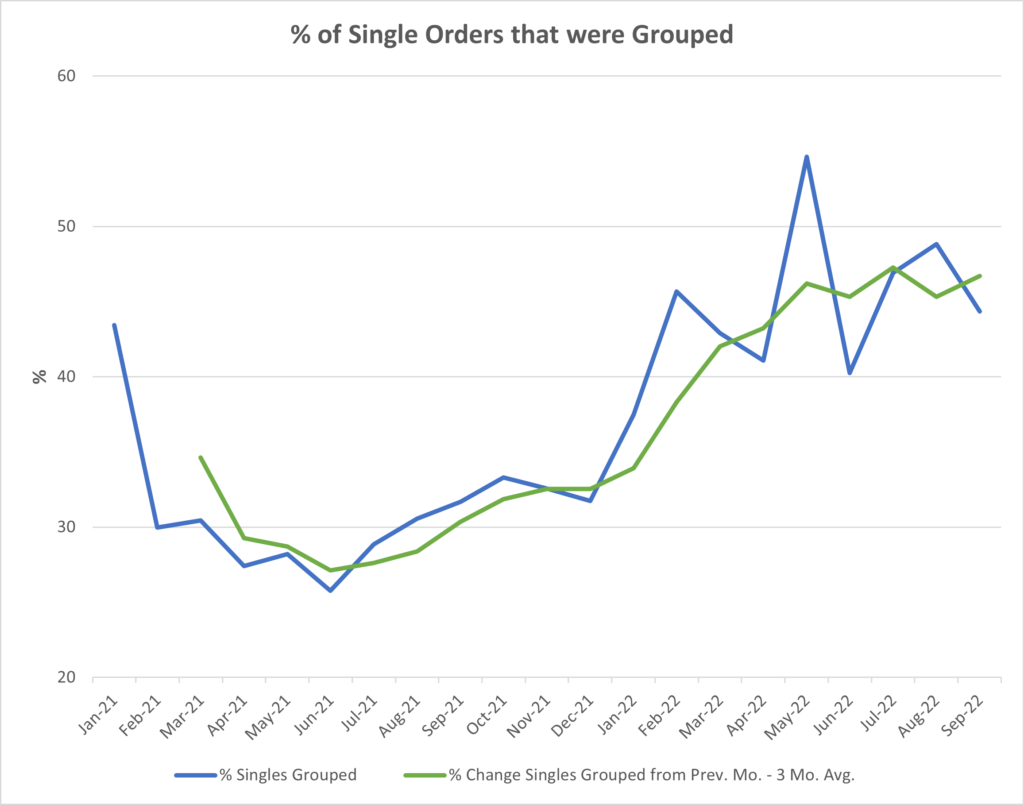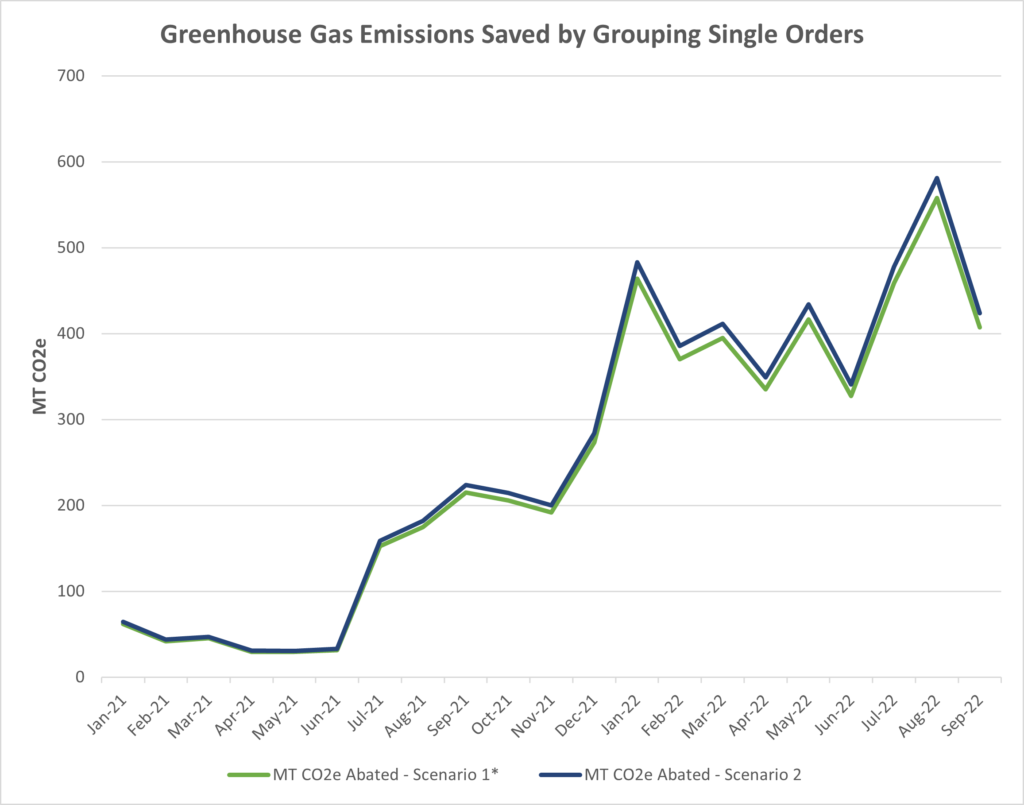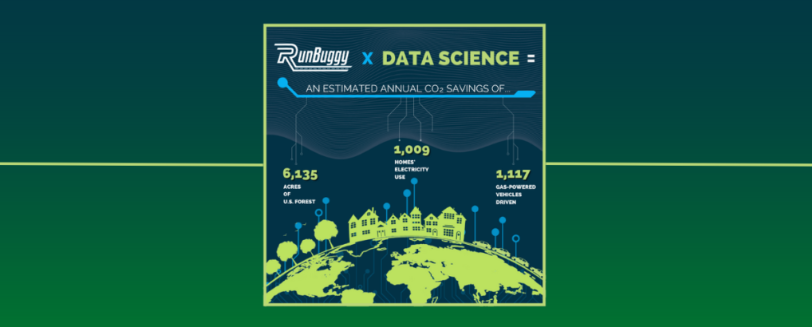Sustainability & Data Science
RunBuggy is thrilled to introduce our Sustainability Program, furthering the industry-leading steps we’re taking toward optimizing how cars are transported for customers and our planet. As RunBuggy’s technology continues to drive efficiencies in the car-shipping process, the Sustainability Program will identify and track metrics related to environmental impact management. RunBuggy is committed to monitoring these figures to inform the development and implementation of further solutions that limit such impact.
The RunBuggy Sustainability Program is unique, in that it is managed within our data science group. Our team is constantly developing algorithms and machine learning models that match and group transportation orders, helping shippers reduce cost and transporters maximize earnings. In parallel, these practices abate greenhouse gas emissions and degradation to the natural environment that would otherwise be worsened without the use of our tools.
Order Grouping & Emissions Savings
The chart below shows how our platform has gotten better at grouping single vehicle orders since 2021. When an order is grouped using RunBuggy’s platform, a vehicle(s) takes a spot on a hauler that may have otherwise been empty – abating unnecessary miles spent on the road.

These avoided miles lead to savings in emissions and other environmental impacts associated with the shipping process. To that end, RunBuggy has developed various emissions savings scenarios to better understand our potential to minimize the environmental footprint of the industry. We will use these scenarios to gain a better understanding of our order grouping technology’s impact on emissions so that we can further improve upon it.
Our knowledge of our transporters’ hauling capacity is limited, so we have outlined the following scenarios to estimate monthly emissions saved since 2021 as a direct result of grouping single vehicle orders only. With assumptions made using RunBuggy data, average shipment distance, knowledge of our transportation network, and EPA emission factors, we have determined the estimates shown below in Scenario 1* and Scenario 2.


It is important to reiterate that these estimates apply strictly to single vehicle orders that were grouped, and we expect our platform has contributed to even greater emission savings by grouping multiple vehicle orders – estimates we expect to establish in the future.
We are proud to have contributed to an estimated savings (per scenario 1*) of over 5,184 MT CO2 equivalent (100-Year GWP) since the start of 2021. According to the EPA Greenhouse Gas Equivalencies Calculator, those savings equal the annual carbon produced from 1,009 homes’ electricity use or even 1,117 gasoline-powered passenger vehicles! From a carbon savings lens, these avoided emissions also match those sequestered by 6,135 acres of U.S. forests in one year.

More to come!
Moving forward, determining an exact methodology to calculate abated emissions resulting from order grouping is a top priority for the RunBuggy Sustainability Program. We hope to better understand these metrics to help improve our technology, especially as many of our partners are seeking solutions to reach targets for net-zero emissions. RunBuggy offers a powerful solution to minimize emissions related to their supply chain transportation and distribution operations. Additionally, our robust data systems will be able to provide clear information to our customers and help them define and verify their carbon footprint from such operations.
Keep up to date with what we are doing on our Sustainability Page and let us know how we can help you ship a car more sustainably!


